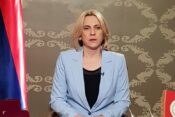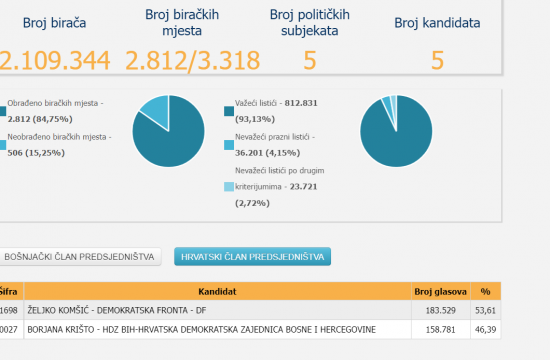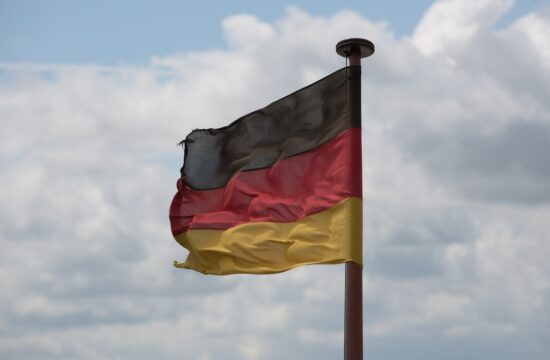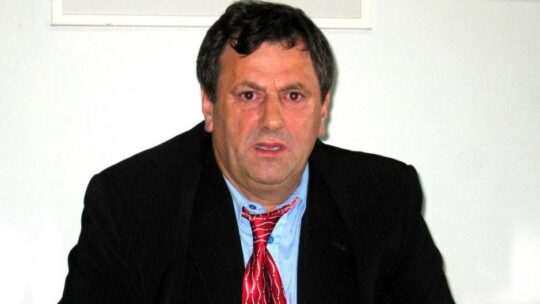
Only Bosnia’s international administrator has the power to declare a nationwide state of emergency, professor at Sarajevo’s Faculty of Criminalistics, Criminology and Security Studies, Lada Sadikovic, told N1 on Monday.
Sadikovic said she found it “unbelievable” that Bosnia’s Constitution, which is Annexe IV of the 1995 Dayton Peace Agreement, does not mention the issue of state of emergency while the constitutions of Bosnia’s two semi-autonomous regions do.
The Serb-majority entity, Republika Srpska, recently declared a state of emergency due to the COVID-19 pandemic. The other half of the country mostly shared between Bosniaks and Croats declared a state of disaster.
Sadikovic called the situation “unusual,” arguing that she does not know of any other country that does not have the issue of the state of emergency regulated for its entire territory.
“Extraordinary measures must be absolutely proportional to the situation they aim to prevent and must be in accordance with international decisions and absolutely necessary,” she said.
“When a state of emergency is declared, human rights and freedoms are reduced, but at the same time they are being protected by the extraordinary measures as everything is being done in order to protect the democratic state, including human rights,” she explained.
That was the case in 1992 when the Bosnian war began, she said, adding that the then presidency had complete authority.
She said she found it “unbelievable” that a state of emergency was declared at a lower government level, asking “who will stand trial when those measures end and if they are breached?”
“Who will report the state of emergency to the European Council Secretary who informs other EU members that this is taking place as it means there is a suspension of democracy going on,” she asked.
Sadikovic stressed that even in those situations some human rights must not be limited, which means that the death penalty or any kind of enslavement can not be introduced.
A state of emergency can, however, entail a lot more than just limit the movement of people and freedom of assembly, as it can also limit media, but it can never be a reason for limiting ‘absolute rights’, she said.
“The European Convention says that every country must report its state of emergency because then it is assessed whether those measures are effective and in accordance with the law,” she said.
“Whether Republika Srpska could declare a state of emergency or not is a question for the EU and its Special Representative,” she said.
Bosnia should have harmonised its laws at the state level regarding the issue with the European Convention for Human Rights shortly after the 1995 Dayton Peace Agreement but this was not done and it brought about a dangerous situation, she said.
She argued that only the High Representative, the foreign diplomat tasked with overseeing the civilian implementation of the Dayton Agreement, has the power to declare a statewide state of emergency “because we are an inefficient state which can not meet its regional and international obligations.”
The other semi-autonomous entity, the Federation (FBiH), could also have declared a state of emergency but authorities there decided the crisis has not reached that point, she said.





